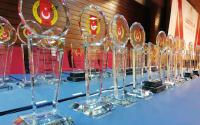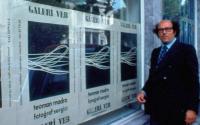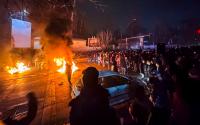Common Dreams / Published on Thursday, September 29, 2005 by the San Francisco ChronicleGlenn Kessler
A group of Turkish female activists confronted Undersecretary of State Karen Hughes on Wednesday with heated complaints about the U.S.-led invasion of Iraq, turning a session designed to highlight the empowerment of women into a raw display of anger at U.S. policy in the region.
"This war is really, really bringing your positive efforts to the level of zero," said Hidayet Sefkatli Tuksal, an activist with the Capital City Women's Forum. She said it was difficult to talk about cooperation between women in the United States and Turkey as long as Iraq was under occupation.
Hughes, a longtime confidante of President Bush with the job of burnishing the U.S. image overseas, has generally met with polite audiences -- many of whom received U.S. funding or consisted of former exchange students -- during a tour of Egypt, Saudi Arabia and Turkey this week.
In this case, the U.S. Embassy asked Kader, an umbrella group that supports female candidates, to assemble the guest list. None of the activists currently receive U.S. funds, and the guests apparently had little desire to mince words. Six of the eight women who spoke at the session, held in Ankara, the capital, focused on the Iraq war.
"War makes the rights of women completely erased, and poverty comes after war -- and women pay the price," said Fatma Nevin Vargun, a Kurdish women's rights activist. Vargun denounced the arrest of Cindy Sheehan, the Vacaville activist mother of a soldier killed in Iraq, in front of the White House on Monday at an antiwar protest.
Hughes, looking increasingly pained, defended the decision to invade Iraq as a difficult and wrenching moment for President Bush, but necessary to protect America.
"You're concerned about war, and no one likes war," she said. But, she said, "to preserve the peace sometimes my country believes war is necessary." Hughes also asserted that women are faring much better in Iraq than under the rule of deposed leader Saddam Hussein.
"War is not necessary for peace," shot back Feray Salman, a human rights advocate. She said countries should not try to impose democracy through war, adding that "we can never, ever export democracy and freedom from one country to another."
Tuksal said she was "feeling myself wounded, feeling myself insulted here" by Hughes' response. "In every photograph that comes from Iraq, there is that look of fear in the eyes of women and children. ... This needs to be resolved as soon as possible."
Turkey, a member of NATO, has long been a close ally of the United States, but relations have soured during the Bush administration, especially after the Turkish parliament blocked a request to allow U.S. troops to stage an invasion of northern Iraq via Turkey.
A June poll by the Pew Global Attitudes Project showed that only 17 percent of Turks supported the U.S. war on terror and many considered the United States a threat to world peace.
Later Wednesday, Hughes traveled to Istanbul, where she met privately at the historic Topkapi Palace with Islamic, Jewish and Christian leaders.
"We discussed the problems of the world," Hughes said afterward, adding that the religious leaders were supportive but did not hold back critical comments. She gave no further details.
The Associated Press contributed to this report.






